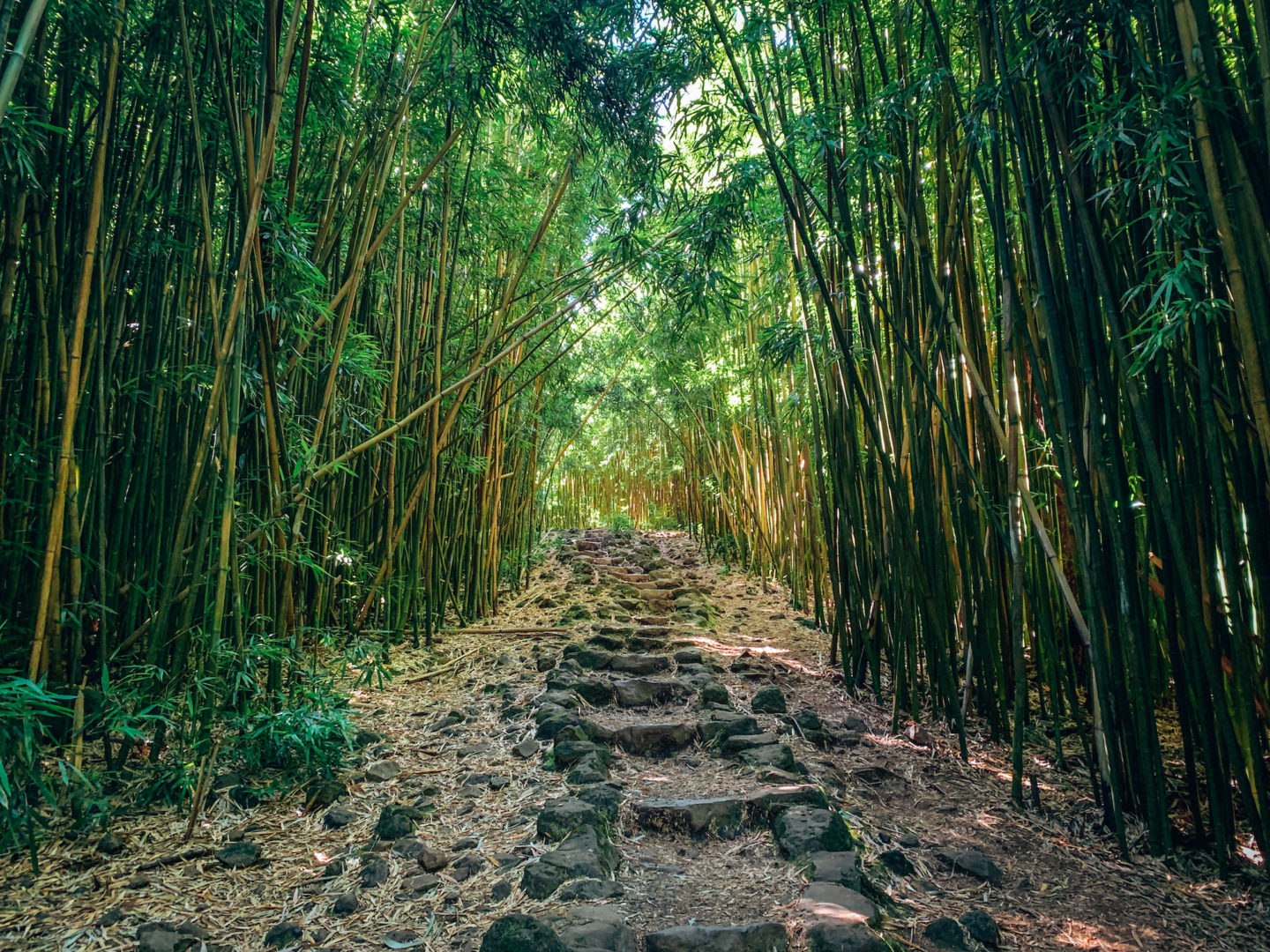
There are roughly 20 different types of landscapes around the world. From deserts, mountains and rainforests, to glaciers, jungles and moors. And did you know that the U.S. has more than 10 of them just in the lower 48 states alone?! If you include Hawai’i and Alaska, that number is much higher. And there’s no better place to experience these wildly different landscapes than the National Parks in the U.S.
While there are U.S. National Parks like Yosemite, Grand Canyon, Yellowstone or Rocky Mountains that are incredibly well known, there are some lesser known parks that you may not realize exist! So let’s get in to 10 National Parks in the U.S. you probably didn’t know existed!
ACADIA NATIONAL PARK
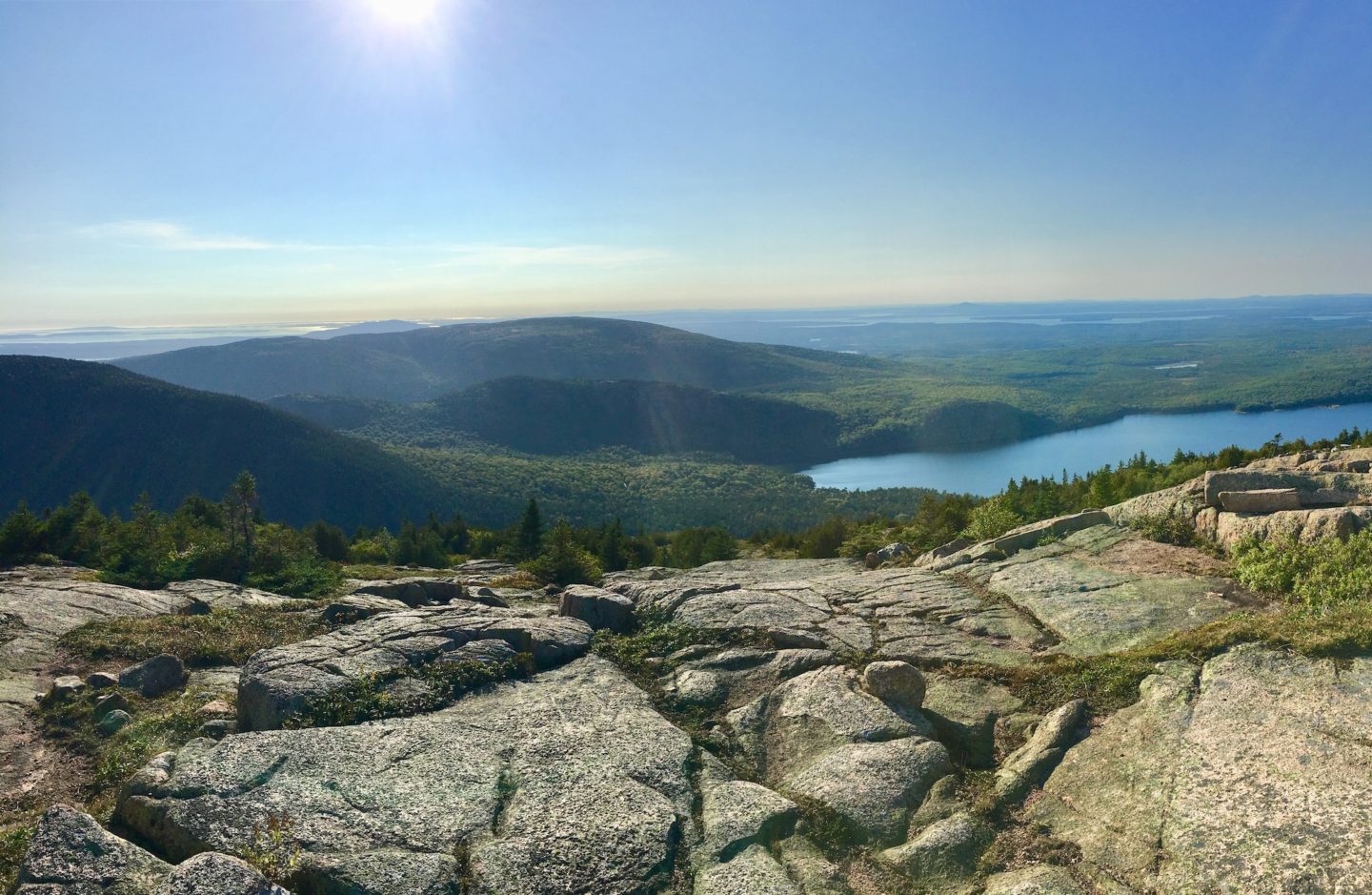
This may be hard to believe, but the upper Northeastern part of the country, and New England in particular, is only home to one National Park! With states like Maine, New Hampshire, Vermont, and New York, it’s hard to believe that the part of the country most known for beautiful fall foliage, only has one National Park. But that’s the case! And that one park: Acadia National Park in Maine.
Sitting along the Atlantic Coast, in the upper half of the state, Acadia National Park is roughly a 1 hour drive from the city of Bangor. If you’re flying to Maine, and your trip includes visiting Acadia National Park, odds are you’ll be flying in to Bangor.
Acadia is one of those paradoxes. It’s in the top of 10 of most visited National Parks in the U.S., but when you ask people about it, many have never heard of it. Or they weren’t aware that it was a National Park. The park is most known for being one of the best places to experience the fall foliage, or changing of the leaves, it’s sprawling coastal views and incredible nature. A drive up to Cadillac Mountain (shown above) gives you every bit of confidence that you made the right choice in visiting. So if you’re ever planning a trip out to Maine, make sure Acadia National Park is on your list of places to visit!
And for more East Coast inspiration, read our OVER 20 FREE THINGS TO DO ON THE EAST COAST (U.S) article.
CONGAREE NATIONAL PARK
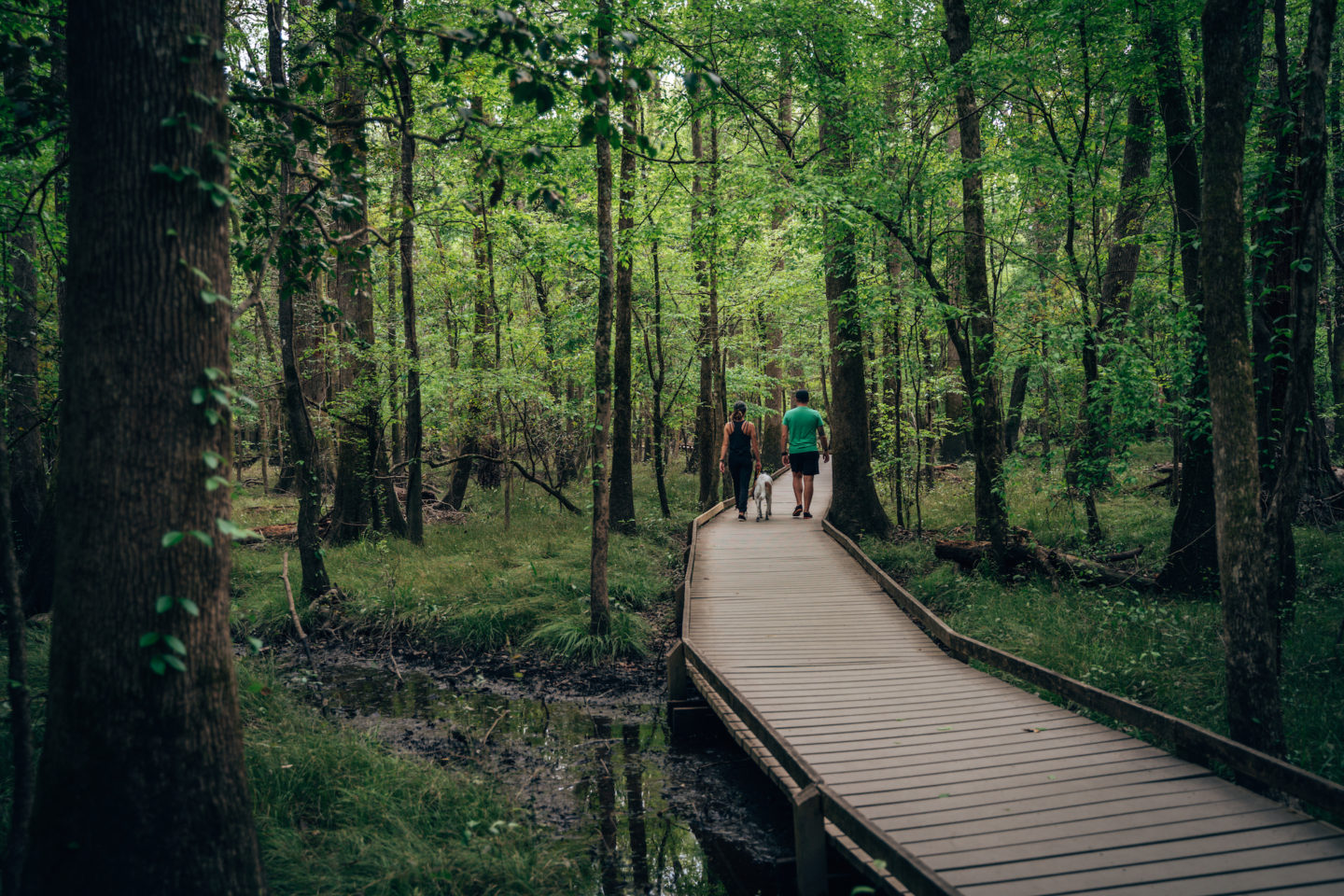
Have you heard of Congaree? We hadn’t until we were in our first 6 months of vanlife. Congaree National Park is located in central South Carolina. It’s most known for being a floodplain forest and having one of the highest canopies of hardwood and pine trees. What is a floodplain forest you ask? Great question! A floodplain is an area of flat land surrounding a river or waterway, that tends to flood during overflow seasons. They tend to be somewhat swampy. Thankfully, Congaree has a boardwalk that runs around the most popular area of the park making it incredibly accessible and dog friendly. Congaree National Park is relatively small (57th smallest out of 63). So one or two days you could easily cover most of the park.
INDIANA DUNES NATIONAL PARK
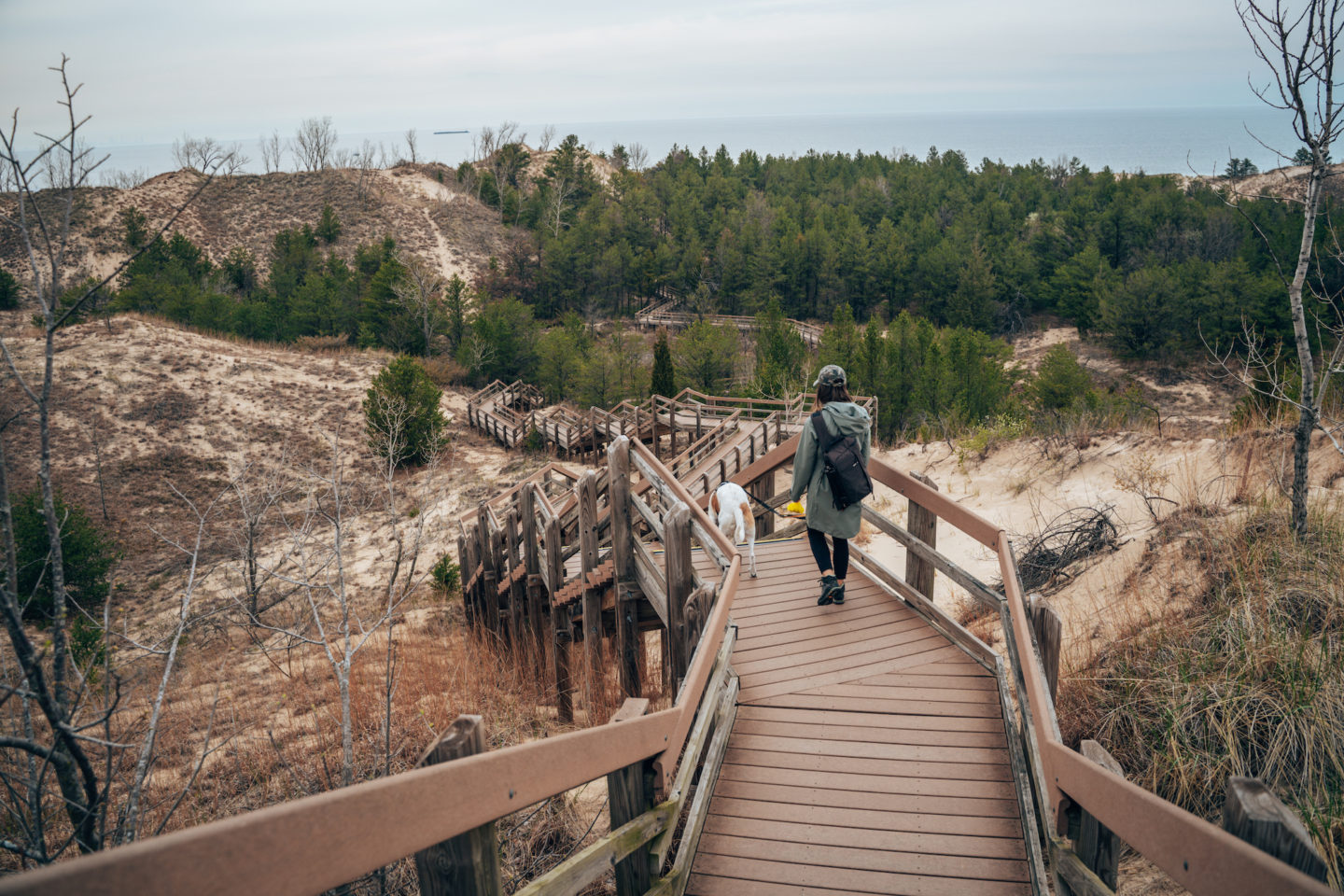
Speaking of small National Parks in the U.S., Indiana Dunes National Park comes in at 58th smallest. In 2019, Congress passed a bill authorizing this National Lakeshore to be converted to a National Park. The dunes are located along the Lake Michigan lakeshore just easy of Gary Indiana. The dunes are incredibly popular during the warmer months as a place to go to enjoy some beach time. But it’s also rich with a ton of history. If you get a chance to research Alice Mable Gray (Diana of The Dunes), please do so. She was quite the pioneer.
GATEWAY ARCH NATIONAL PARK
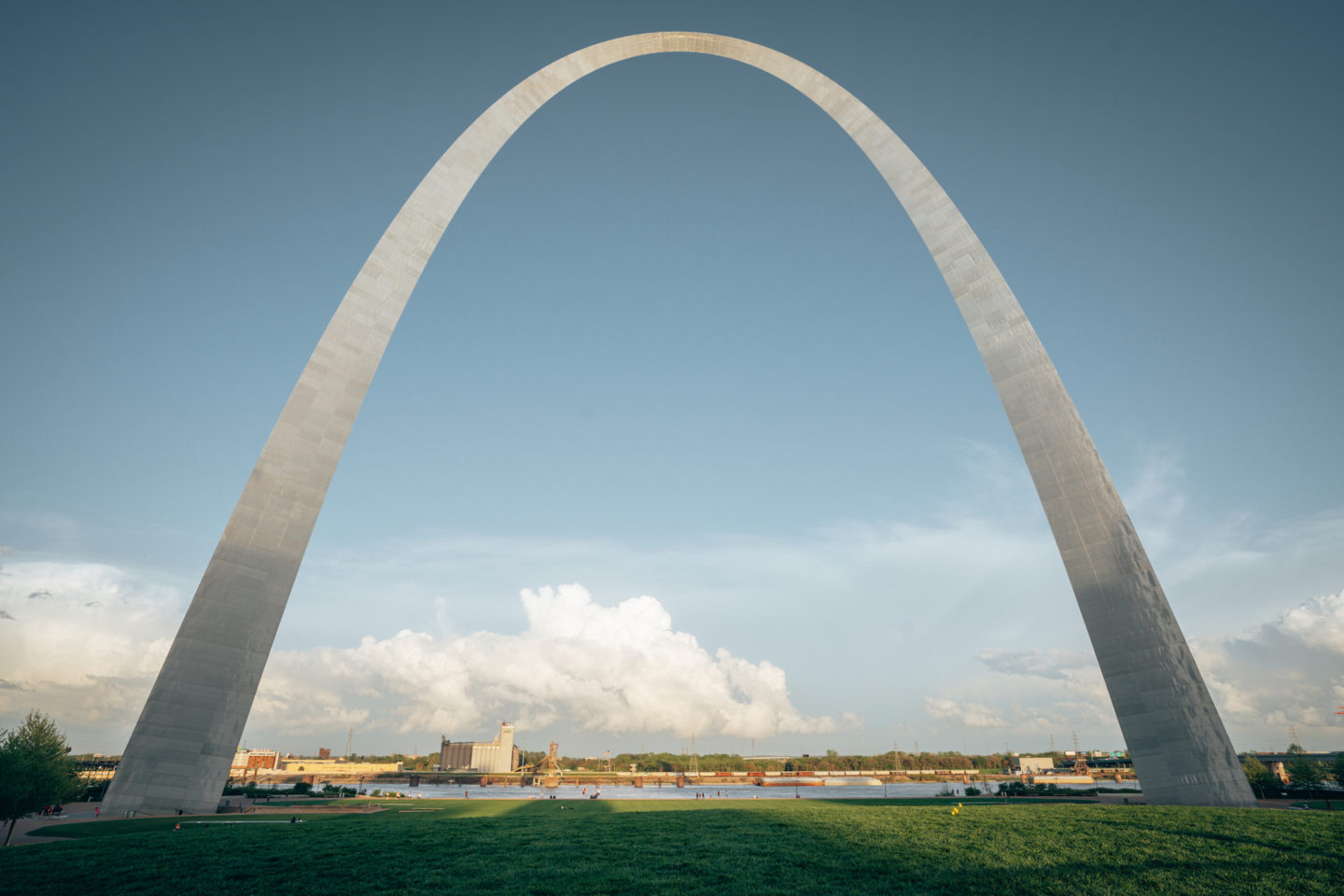
I swear it wasn’t intentional, but we have a smallest National Parks in the U.S. theme going on here.
The Gateway Arch National Park is THE smallest of all the National Parks. It is also one of the only National Parks to be designated as a National Park that isn’t a natural landscape. The Gateway Arch is a memorial, formerly known as Jefferson National Expansion Memorial. It was commissioned as part of a nationwide competition in 1947. The goal was a create a structure that paid tribute to the pioneers who contributed to the westward expansion of the 1800s. The history of who’s design won the competition and the actual architectural design is actually quite interesting! After all, it isn’t JUST an arch. There are elevators that run up and down each leg of the arch, with an observation deck at the top. This observation deck gives you a near 360º view of the St. Louis skyline.
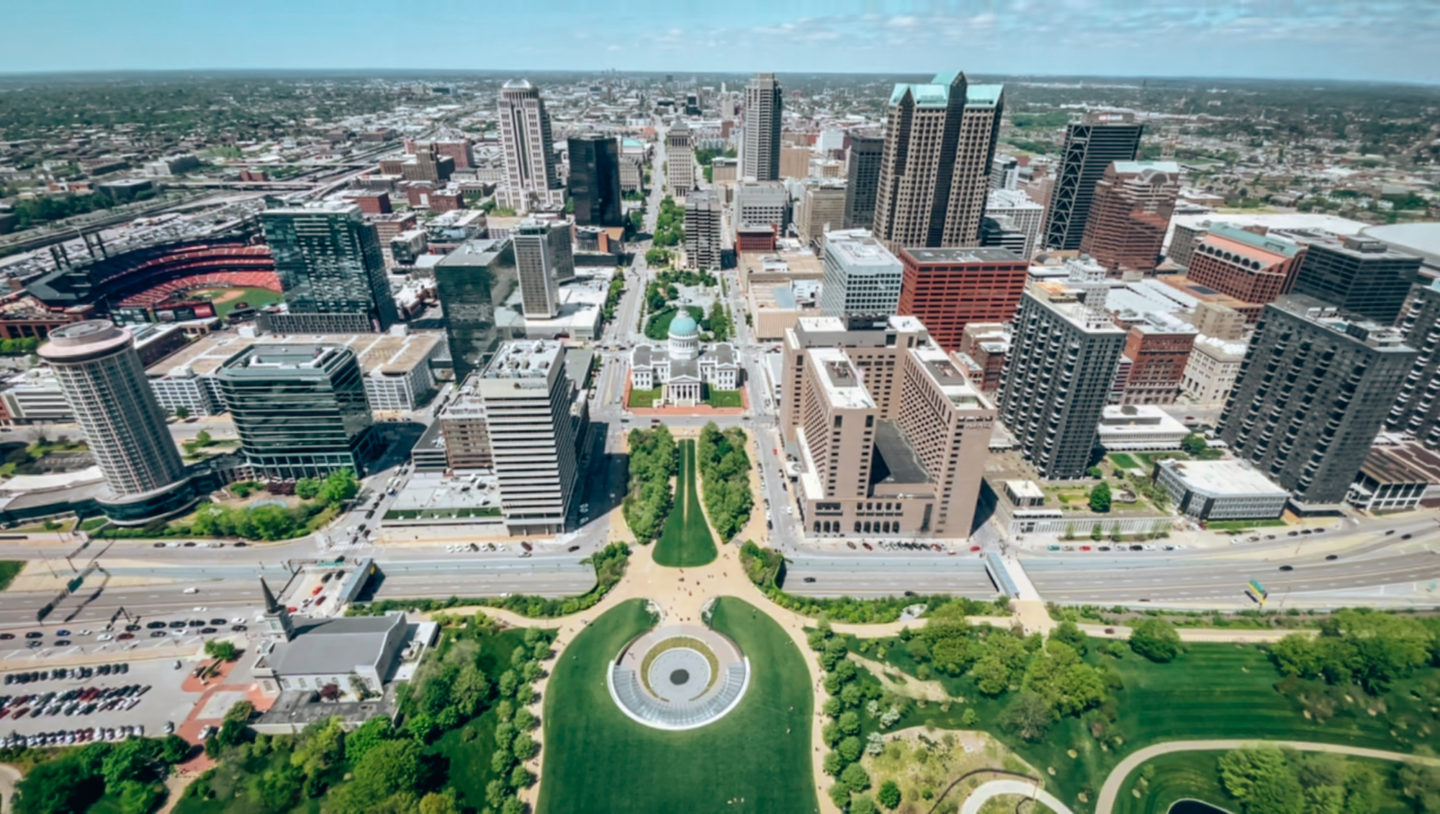
Would you go up? You can buy tickets HERE if you dare!
WIND CAVE NATIONAL PARK
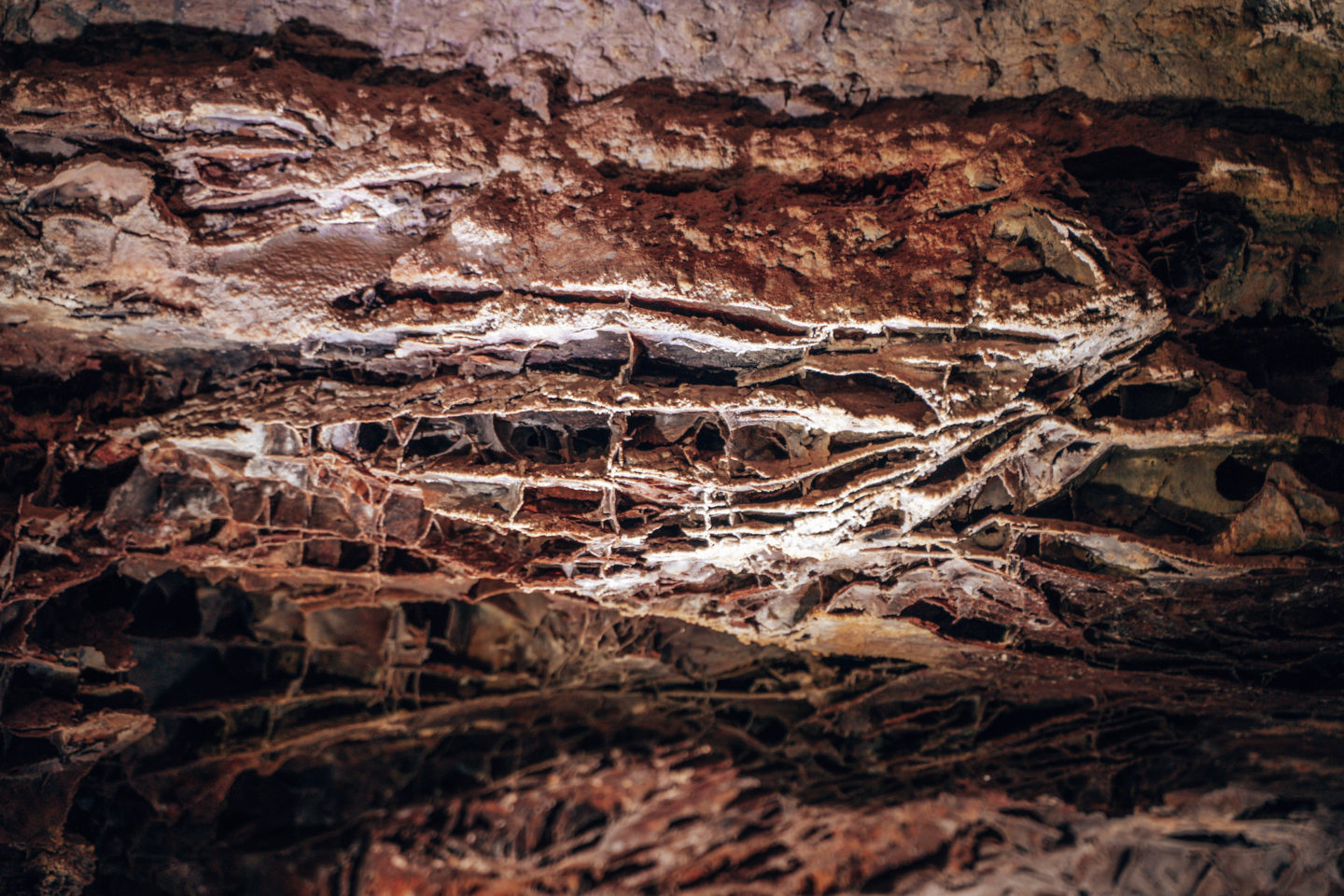
1 of 2 National Parks in South Dakota, Wind Cave National Park is the lesser known and often overshadowed by the vastness and unique landscape of Badlands National Park. But the history of Wind Cave is really quite something. With the exception of a small basketball sized hole, there are no natural entrances to the cave system down below. And this small natural entrance plays a pivotal role in the local Native American history and legend. Legend says it was a portal for the Lakota people to leave the spirit world below and emerge above to Earth. Today, the hole plays a role and is a primary reason for the naming of this park. As the pressure systems rise and fall, wind will literally blow in or out of this hole. They’ve clocked wind speeds of 70+ miles per hour going through this hole!
Beneath the ground, is the 7th largest cave system in THE WORLD! I don’t know about you, but that’s something worth visiting. To read more about it and for more info on planning a trip there, check out our ULTIMATE GUIDE TO WIND CAVE NATIONAL PARK.
WHITE SANDS NATIONAL PARK
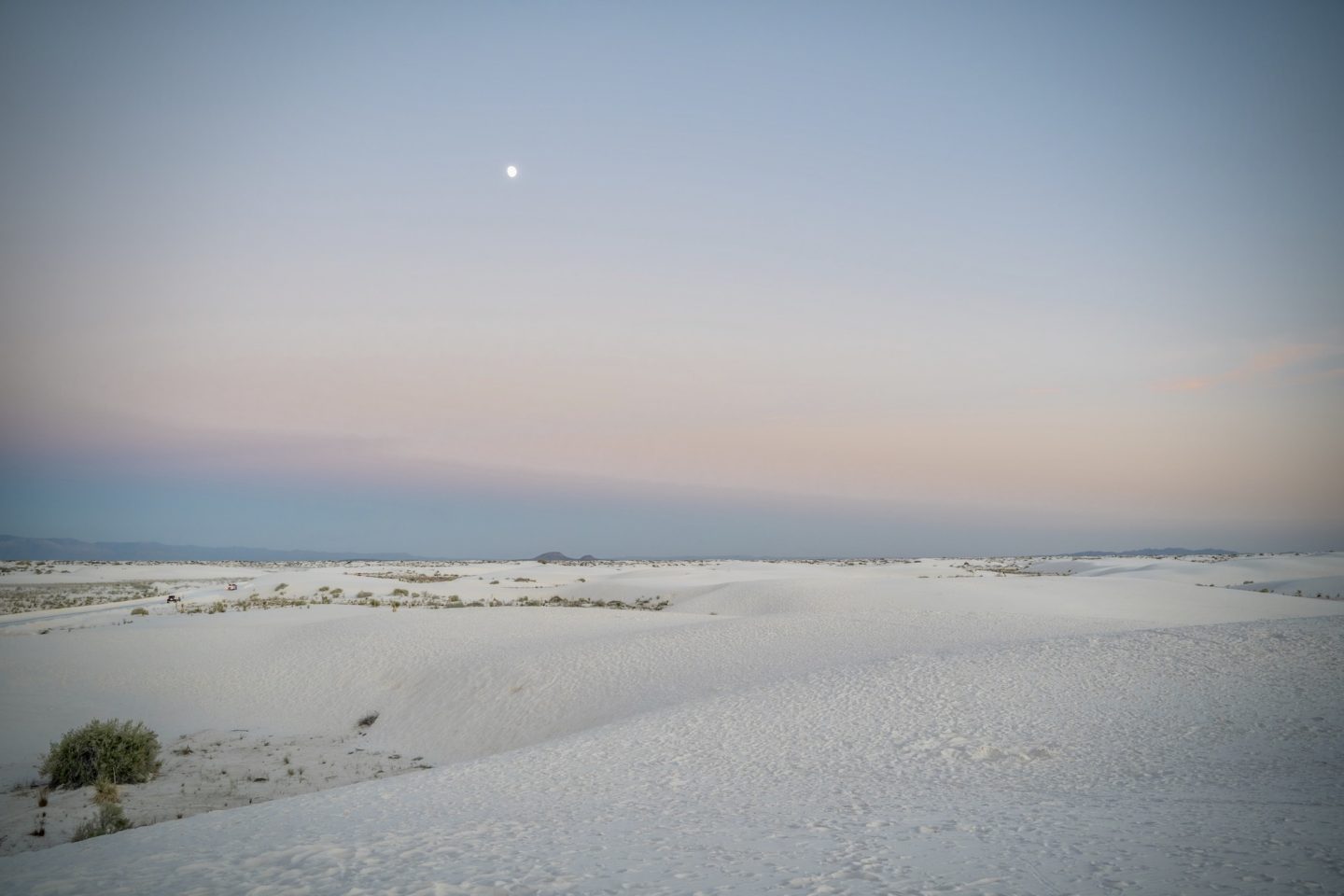
One of the more mind boggling National Parks, is White Sands National Park. It resides not far from Las Cruces New Mexico. And if you’ve ever been to New Mexico, you know that it’s mostly desert. And then there is White Sands National Park. 146,000 square acres of white gypsum dunes. It’s not even sand! But it honestly looks like snow covered hills in the middle of New Mexico! It is by far one of THE most unique landscapes we’ve ever visited. And if you’re as intrigued as we were, check out our ULTIMATE GUIDE TO WHITE SANDS NATIONAL PARK article for more info.
LASSEN VOLCANIC NATIONAL PARK
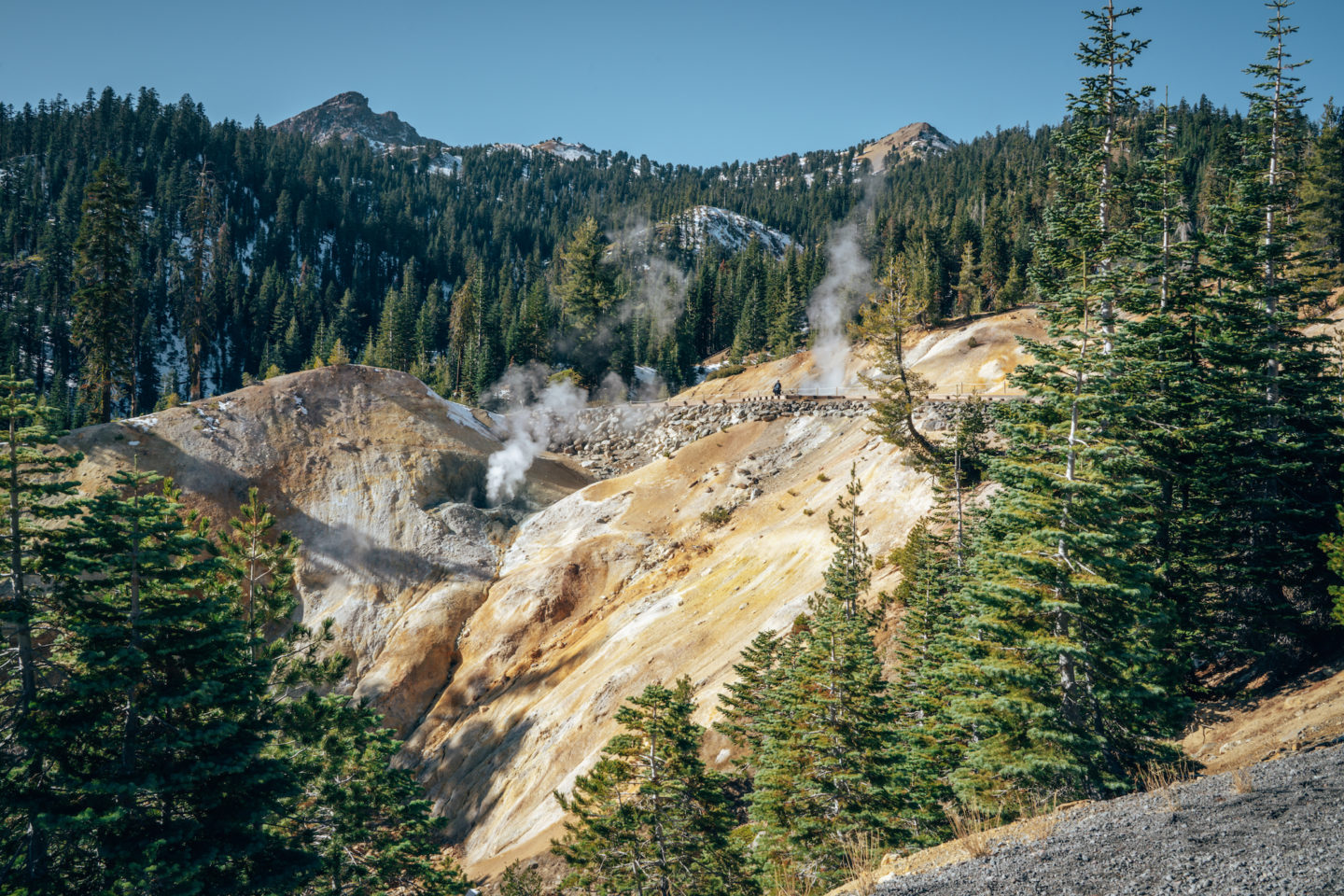
1 of 9 National Parks in California, Lassen Volcanic National Park tends to get overlooked and overshadowed by its more popular counterparts. We believe part of this is due to its location. It’s located in the far northern part of California, roughly 6 hours from San Francisco and almost 10 hours from Los Angeles. That’s driving. But it deserves much more recognition! Lassen is known for being home to all four of the different types of volcanoes around the world. As a result, you’ll find steam vents, mud pools and pots, and a number of other hydrothermal features. But the landscape is also incredibly beautiful, and there is a lot to do there. So while it might be out of the way, Lassen Volcanic National Park is definitely worth a visit!
PINNACLES NATIONAL PARK
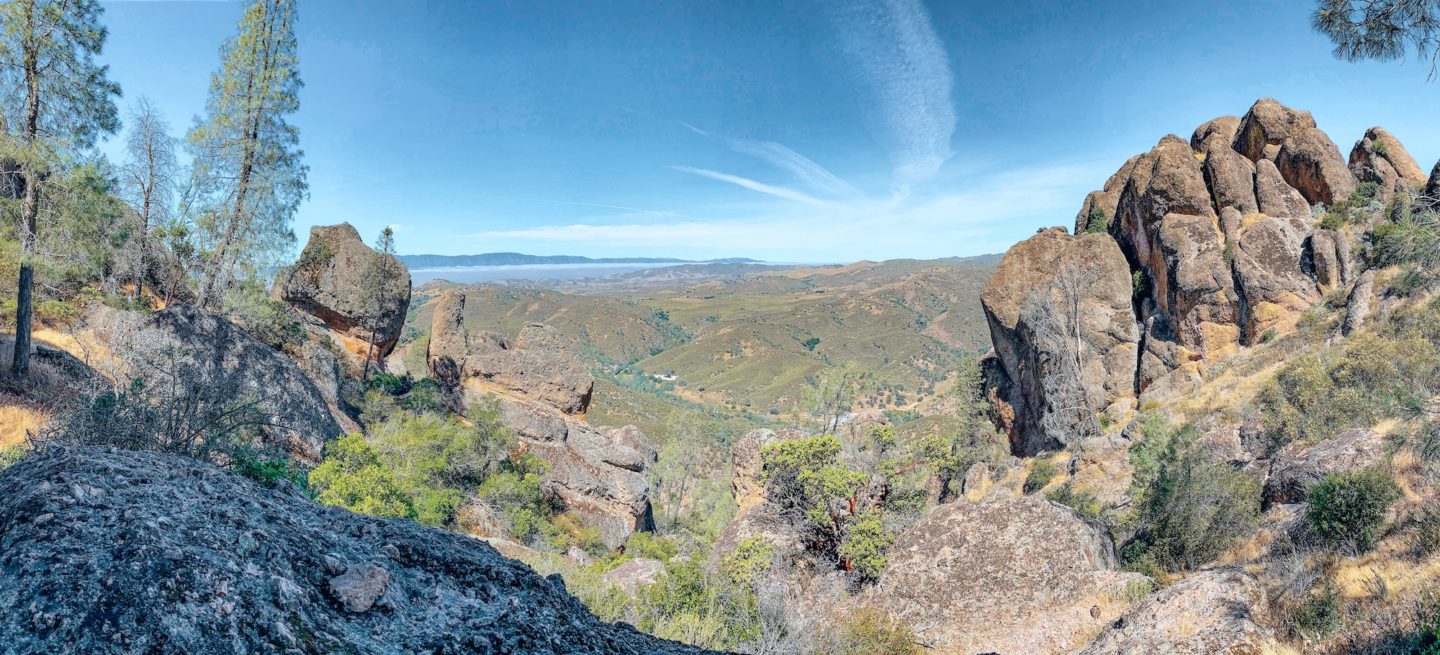
Much like Lassen Volcanic National Park, Pinnacles National Park is also overlooked, overshadowed and underrated when it comes to California National Parks. While it is on the smaller side (56th smallest), it has a lot of offer! It’s known for its rock formations, wildflowers, wildlife and hiking trails. And since it’s only a few hours drive from the San Francisco Bay Area, well, it is a must visit and easy to fit in to any California vacation.
HAWAI’I VOLCANOES NATIONAL PARK
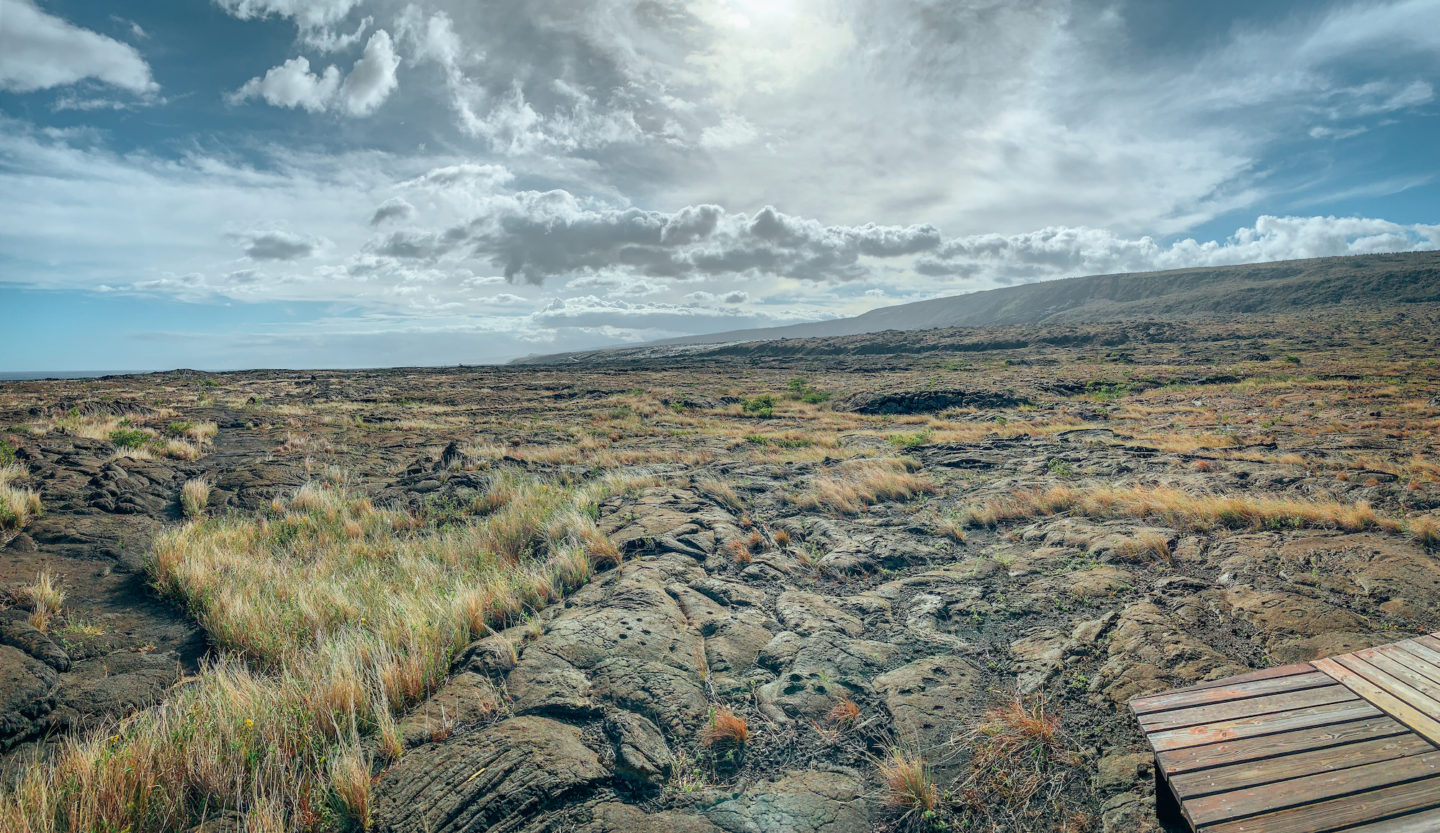
This one requires some flying, but we assure you, it is worth it! Located on the largest Hawaiian island, Hawai’i Island (or The Big Island as most call it), is Hawai’i Volcanoes National Park. This park is quite large and covers a lot of area due to the two resident active volcanoes: Kīlauea and Mauna Loa. You may remember the big eruption that took place in 2018, that impacted a large number of residents on the island, that was Kīlauea. In addition to being a National Park, Hawai’i Volcanoes National Park is also an International Biosphere Reserve and UNESCO World Heritage Site.
Besides the two volcanoes, the park is most known for its rich ancient Hawaiian cultural history, lore and artifacts. One of our favorite things to do here, was visit the ancient Pu‘uloa Petroglyphs. These petroglyphs were carved in to hardened lava roughly 600-800 years ago! Hawai’i Island is also home to 4 out of the 5 major climate zones in the world and 8 out of 13 of the sub-zones. So if you’re looking for variety, this is the place to be! And if you’re going to make the trek out to the island, our 7 (NEARLY) FREE THINGS TO DO ON HAWAI’I ISLAND will help you make the best of the trip!
HALEAKALĀ NATIONAL PARK
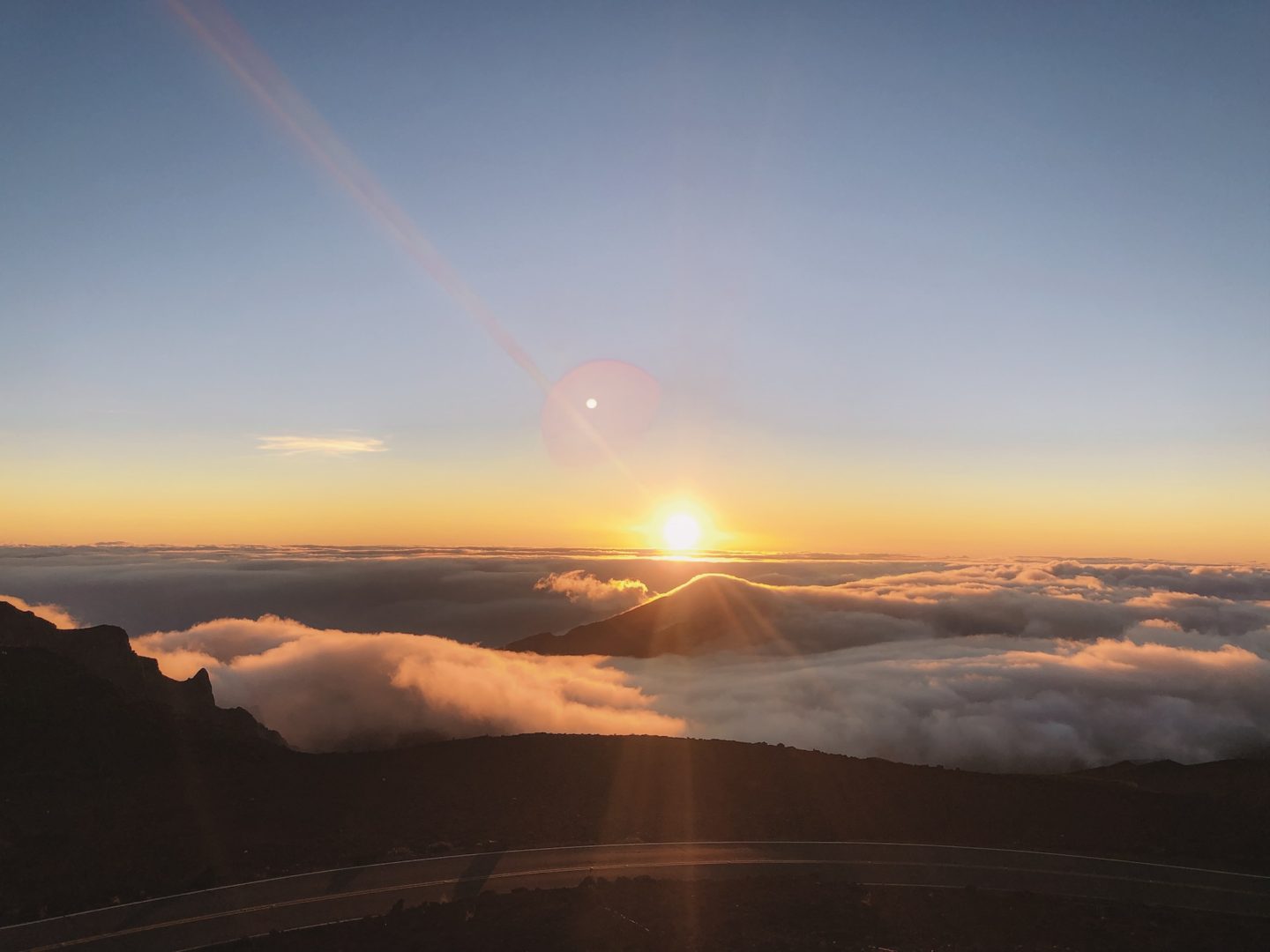
If you’re visiting Hawai’i Volcanoes National Park on Hawai’i Island, you might as well take an inter-island flight over to Maui and visit Haleakalā National Park. Haleakalā National Park, also home Haleakalā Volcano, is most known for it’s incredible summit sunrises and sunsets. Who wouldn’t want to watch the sun rise or fall while you are perched above the clouds at over 10,000ft? It is truly one of THE most incredible experiences we have ever had. But this park is also home to a lush bamboo forest, a massive banyan tree, an incredible waterfall and more. This was not only one of our first National Parks in the U.S., but to this day, is one of our favorite. And if you’re going to make the trek out to the island, our 7 (NEARLY) FREE THINGS TO DO ON MAUI will help you make the best of the trip!
MAP OF U.S. NATIONAL PARKS YOU PROBABLY DIDN’T KNOW ABOUT
10 NATIONAL PARKS IN THE U.S. YOU PROBABLY DIDN’T KNOW EXISTED
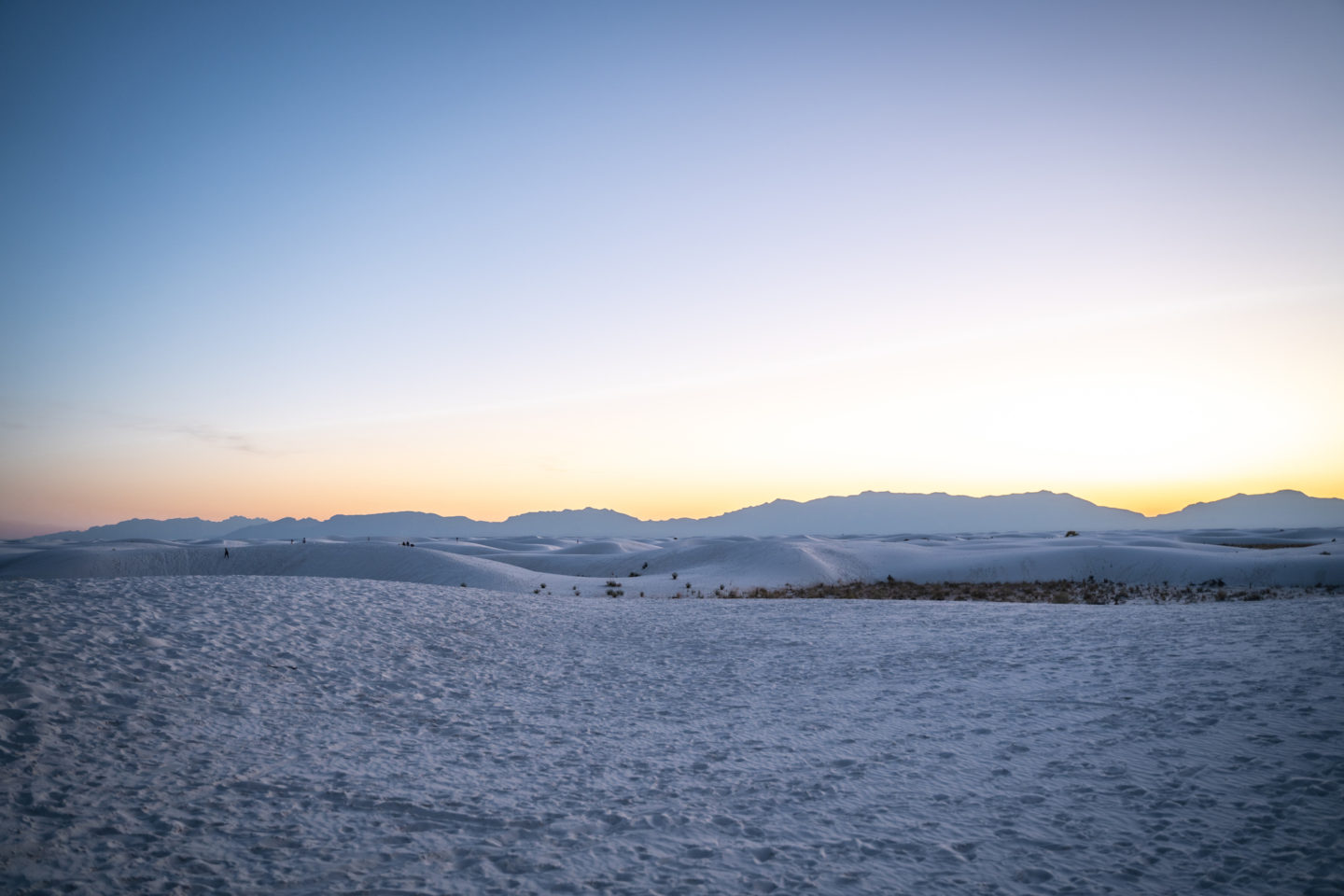
Had you heard of all 10 of these National Parks in the U.S.? Did you know all of them were National Parks? We’d love to know! And if you’re looking for more North American travel inspiration, head over to our North America page!
If you aren’t following us on Instagram, check us out there as this will be the best place to follow our van life journey and adventure!
Thanks for stopping by!